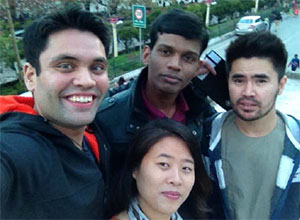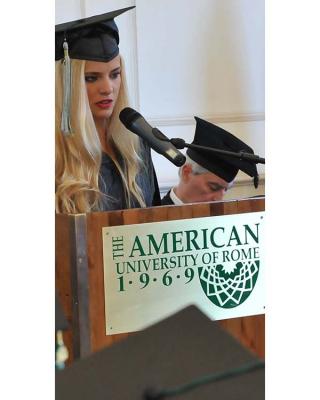 Karan Babbar (pictured at right with his field research team) is currently enrolled in a Master’s program in Sociology at the South Asian University in Dehli. Of the program he shares,
Karan Babbar (pictured at right with his field research team) is currently enrolled in a Master’s program in Sociology at the South Asian University in Dehli. Of the program he shares,
“The South Asian University is a new university in India. It was established very recently in 2010. It is a South Asian Association for Regional Cooperation (SAARC) project with investment from all the SAARC nations. The focus of this university is to promote South Asian studies in a ‘South Asian’ context. Since many of the South Asian studies departments are either in foreign universities or in Indian universities, this university provides a common ground between them. Scholars that are located within the region can then study the region together. It is a great study experience because since we are very new, any dissertation by a student is also considered to be an integral part of studying the local regions. So if I do a study it is used by my professors to further develop the knowledge base of the region. The students here are from all the SAARC nations and luckily in my batch I have a good balance of students. So I get to hear all perspectives and traditions that I never knew about. For example I never knew about the barter system still being followed in Afghanistan on a regular basis at the local level. My study is on (work in progress) the factors affecting women’s education in an urban environment. So I will be conducting field interviews of women who have dropped out of schools and try to analyse the major cause for them to drop out. I am doing this in part to critique the frame in which the NGOs present their findings, that is, they link everything to economic factors so that they can ask for more money. This gives an obscured picture of what is actually happening. My hypothesis is that familial factors, which would include things like traditions and mind set of the family towards the females, are stronger influences than just economic alone.”

